Two doctors want you to know what social media filters might be doing to your mental health
Plus, discuss the effect this could have on a generation constantly comparing themselves to completely unattainable beauty standards
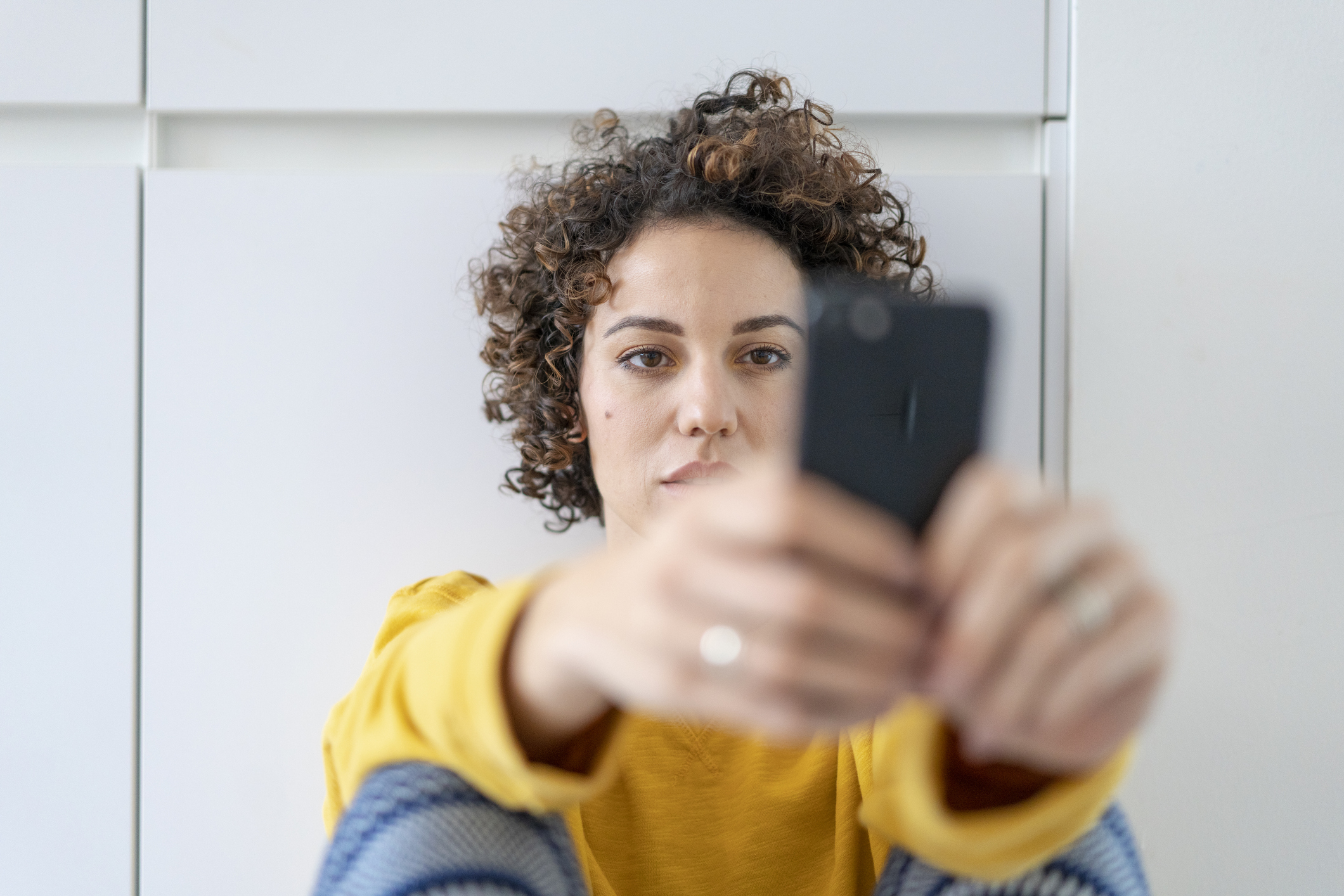
Plus, discuss the effect this could have on a generation constantly comparing themselves to completely unattainable beauty standards
Checking my Instagram after work one day, a post jumps out at me.
I stop my scrolling to examine a story from content creator Faye Dickinson, who has 75k followers. Half the screen is a normal photo of her face: she's sans make up and wearing a black and red hoodie with her hair in a bun. On the other side, her features are edited - albeit not dramatically - by one of the platform's many 'subtle' beauty filters.
But that's the thing - while you wouldn't notice the edits if they were all over her face, when you see them side-by-side, the Photoshopping really stands out. Her lips are plumped to a level that could realistically only be achieved by filler, her skin is airbrushed of all and any imperfections, and her eyes are a totally different colour under a row of perfectly edited on lashes.
It's quite scary.
These filters are used by millions of people every day - Instagram has over 815 million users, and while the exact number of story filters are unknown, it's definitely in the hundreds of thousands. Many of said filters pose as subtle day-to-day colour changes or brightening effects but, in reality, edit your face and features more than perhaps even you know.
Last year, Sasha Pallari started using the hashtag #FilterDrop to encourage social media users to post selfies without any filter at all. She went on to lobby the Advertising Standards Authority (ASA) about face-altering apps and Photoshop on social media, arguing that the constant blurring of real and fake, especially in the beauty world, was prompting influencers to sell products with highly Photoshopped and filtered images of themselves.
They've since introduced laws around beauty influencing, which dictate that you must state if you've edited a photo, but it's not enough.
Marie Claire Newsletter
Celebrity news, beauty, fashion advice, and fascinating features, delivered straight to your inbox!
When the 'you' you're seeing every day on social looks medically enhanced, what does this actually do to your mental health and internal body image narrative? I reached out to Dickinson to get her take on the trend and further chatted to two doctors about the effect this constant yet subtle airbrushing is having on our mental health. Keep reading.
Introducing Filter vs Reality
A 2017 study in the journal Cognitive Research: Principles and Implications found that manipulated images are only recognised 60% to 65% of the time. Seeing how many filters even subtly Photoshop your face now, it begs the question: what effect will this have on a younger generation who are constantly comparing themselves to completely unattainable beauty standards?
According to Dickinson, "I created my split-screen filter to show people how dramatic these beauty filters really are. They rid you of skin textures, tones, scars, everything that makes you, you, and I've no doubt it's affecting our mental health," she shares.
"It's so easy to feel insecure, especially when so much of the content we consume daily is filtered and photoshopped. When everyone looks picture-perfect, it's hard not to focus on your flaws," she goes on.

What effect do you think these filters have on our mental health?
Research has previously established that social media use negatively impacts mental health, increasing the risk of anxiety, body dissatisfaction, low self esteem, depression and suicidal thoughts, points out doctor Mariam Adegoke GP and founder of Adegoke Wellness Clinic.
"In one particular study, results showed that manipulating selfies (i.e through use of filters), led to greater body-related concerns. And in a catch twenty two, those who are dissatisfied with their image are more likely to use a filter, further reinforcing the negative belief that how they look is not good enough," she explains.
They're also seeing that translate in clinic - 'there has been a noticeable rise in people requesting treatments such as dermal fillers or PDO threads to have lips like Kim, a jawline like Kylie, or eyes like Bella Hadid', she shares. More dangerously, she shares that there has been a rise in people travelling abroad for dangerous Brazilian butt lift surgeries to get the signature Kardashian hourglass figure.
Pablo Vandenabeele, Clinical Director of Mental Health at Bupa UK, agrees, sharing that for some, selfies and filters can be light-hearted, but for others, they can be harmful to your overall mental wellbeing. "Your self-esteem and life satisfaction can be negatively affected, particularly after using image-altering filters that ‘beautify’ your appearance. These can set an unrealistic expectations and may lead to people striving for a very narrow concept of ‘perfection’."
Think about is - when there's a difference between the images posted online and what you're seeing in the mirror day-to-day, there's bound to be some repercussions. "In some cases, this can lead to a low mood, anxiety, and depression, as well as body image issues, such as body dysmorphia," Pablo explains.
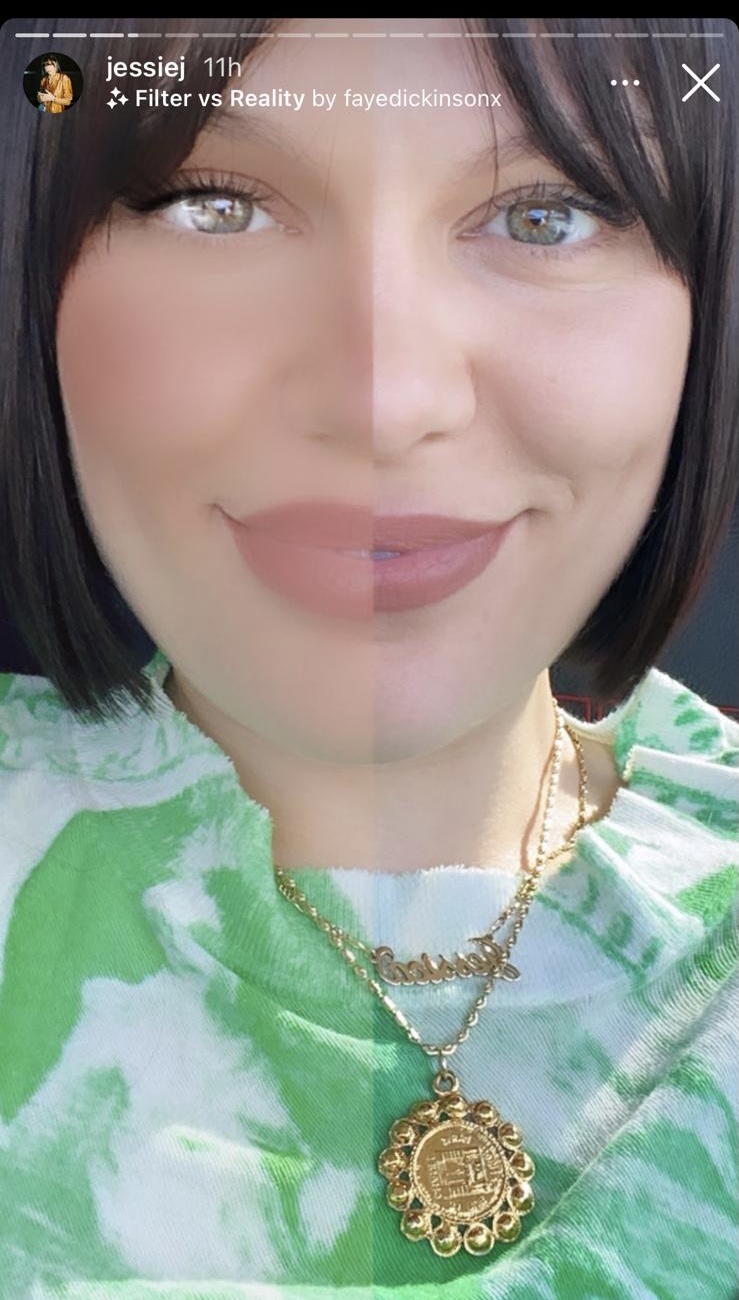
What is the solution?
Good question - and one that there's not necessarily an answer to yet. We asked both experts if further legislation would help, or whether flagging each image as edited may be the way forwards?
"Having to have a warning would certainly be a helpful reminder for when people go to compare themselves to others," shares doctor Adegoke. She also reckons that more robust regulations around advertising on social media would help to tackle the level of misinformation on these platforms.
Recurrently reinforcing the fact that not everything you see online is real, through health education adverts or other means, is also important, she reckons.
And finally, she also believes that we need to create a culture where we don’t have so much screen time. "Remember to exist in the real world and not just online," she advises, "However, this is obviously easier said than done in the middle of a technology boom."
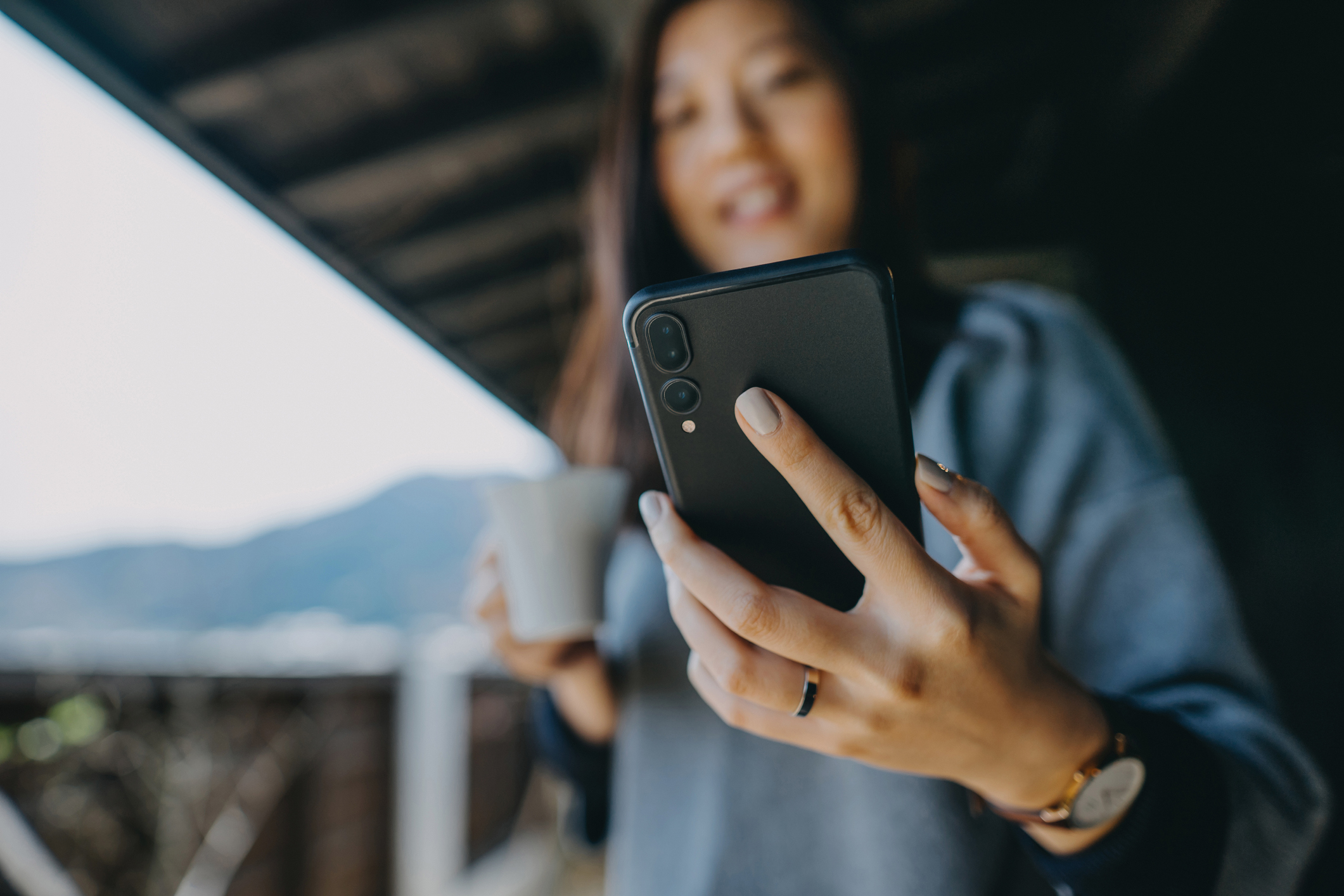
5 tips for protecting your mental health, if online filters are affecting your confidence
1. Be selective about who you follow, and what you use
Vandenabeele recommends you actively seek out accounts that promote real people and body positivity, celebrating beauty in all its shapes and sizes. "Unfollow any accounts that make you feel negative in any form – whether it’s jealousy, upset, shock or simply disinterest," he recommends. Remember: you don’t have to follow anyone.
Similarly, avoid using any apps that negatively affect your wellbeing. Although it’s easier said than done, it has lots of benefits for your mental health.
2. Reduce your time online
If you’re using social media filters and it’s causing you to feel negatively about yourself or your appearance, it’s time to switch off.
"If you experience any negative thoughts, anxiety, low mood, or depression when you use these apps, switch off and focus your attention elsewhere - perhaps a relaxing activity, like reading or a walk outside," the doctor advises.
3. Put your mental health first
You should regularly check in on yourself and your social media habits - 'it’s crucial to have a healthy relationship with these apps', according to the expert.
"There are lots of benefits to social media especially as it’s helped us stay closer over the last year, but unfortunately it can exacerbate mental health issues," Vandenabeele says.
4. Practice self-compassion
Social media filters can set unrealistic expectations for yourself, and leave you feeling low, as we've covered. "Try tuning in to your inner voice and noticing how it speaks to you – it’s important to be kind to yourself and accepting your strengths and weaknesses," he shares.
Try this: Writing down three things everyday you’re proud of can be a great self-care idea. The idea is to build up a picture of yourself that’s based on truth and evidence, which you can turn to for reassurance and in times of self doubt.
5. Seek support
If you think social media filters are genuinely impacting your day-to-day life and taking a break isn’t helping, it’s important to speak to your GP, a mental health professional or a loved one, advises Vandenabeele.
"There is always support available; it can feel a huge relief to open-up about any negative feelings you’re experiencing," he shares.
This isn’t something you need to face alone: do reach out to your doctor or contact mental health organisations like Mind, who have a free helpline.

Ally Head is Marie Claire UK's Senior Health and Sustainability Editor, nine-time marathoner, and Boston Qualifying runner. Day-to-day, she heads up all strategy for her pillars, working across commissioning, features, and e-commerce, reporting on the latest health updates, writing the must-read wellness content, and rounding up the genuinely sustainable and squat-proof gym leggings worth *adding to basket*. She also spearheads the brand's annual Women in Sport covers, interviewing and shooting the likes of Mary Earps, Millie Bright, Daryll Neita, and Lavaia Nielsen. She's won a BSME for her sustainability work, regularly hosts panels and presents for events like the Sustainability Awards, and is a stickler for a strong stat, too, seeing over nine million total impressions on the January 2023 Wellness Issue she oversaw. Follow Ally on Instagram for more or get in touch.
-
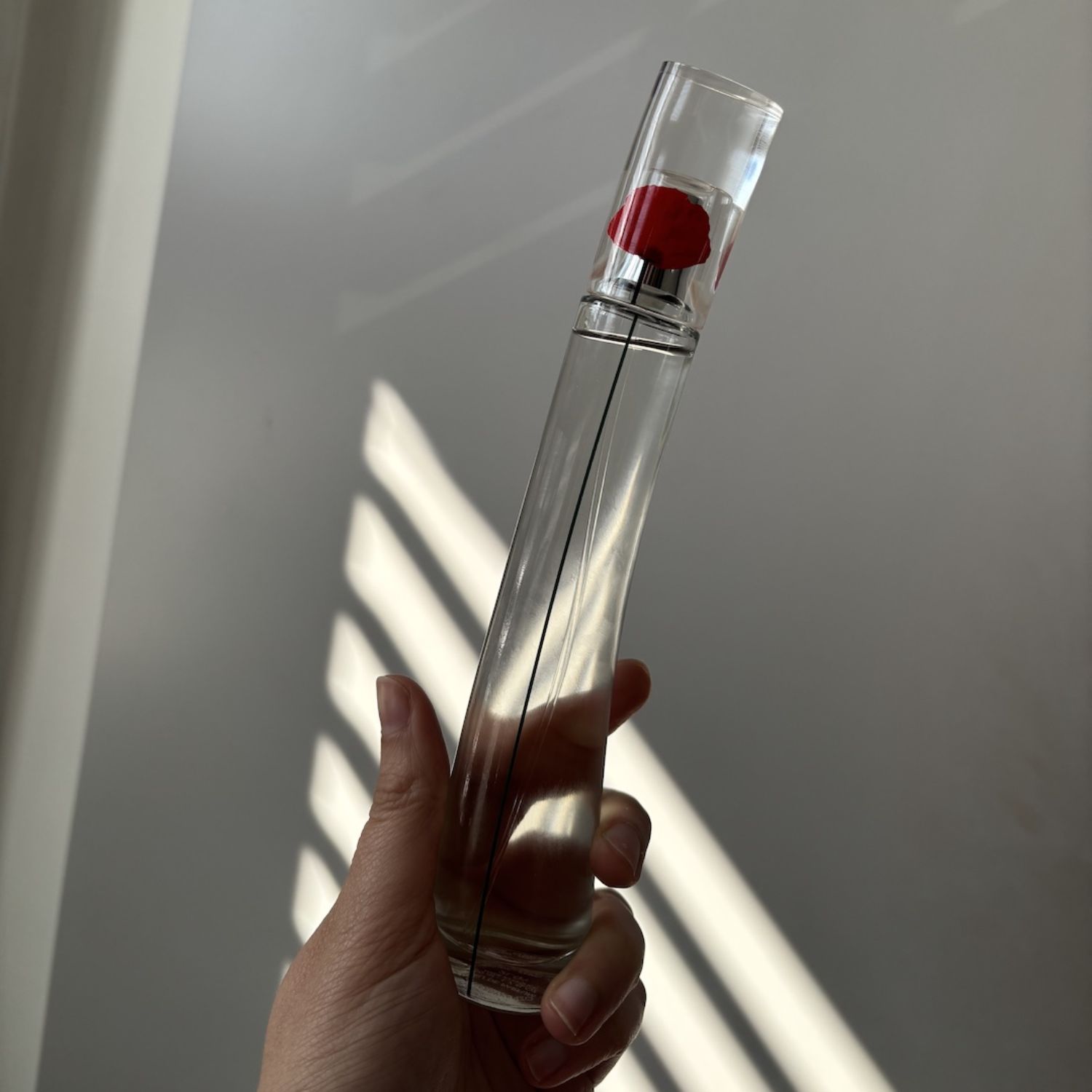 As a perfume-obsessed beauty editor, I can’t believe it’s taken me 25 years to try this classic Y2K scent
As a perfume-obsessed beauty editor, I can’t believe it’s taken me 25 years to try this classic Y2K scentIt was worth the wait
By Mica Ricketts
-
 I'm a 9x marathoner who likes looking and feeling their best. Enter: the functional but fashionable race day outfits I swear by
I'm a 9x marathoner who likes looking and feeling their best. Enter: the functional but fashionable race day outfits I swear byThese outfit formulas almost guarantee you a PB.
By Ally Head
-
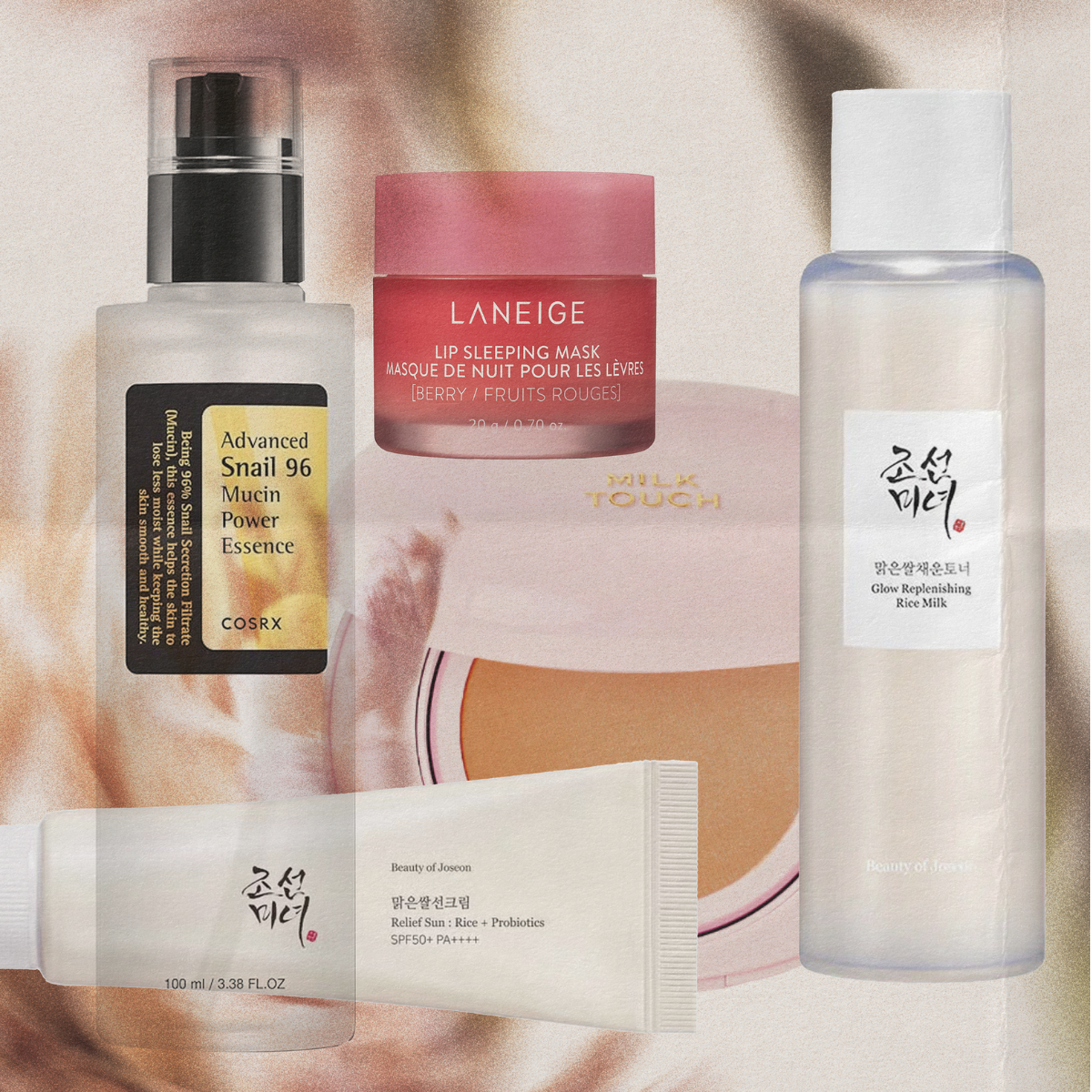 We're not for panic buying, but here's how Trump's tariffs might affect your K-beauty spending habits
We're not for panic buying, but here's how Trump's tariffs might affect your K-beauty spending habitsThey could impact the industry globally
By Nessa Humayun